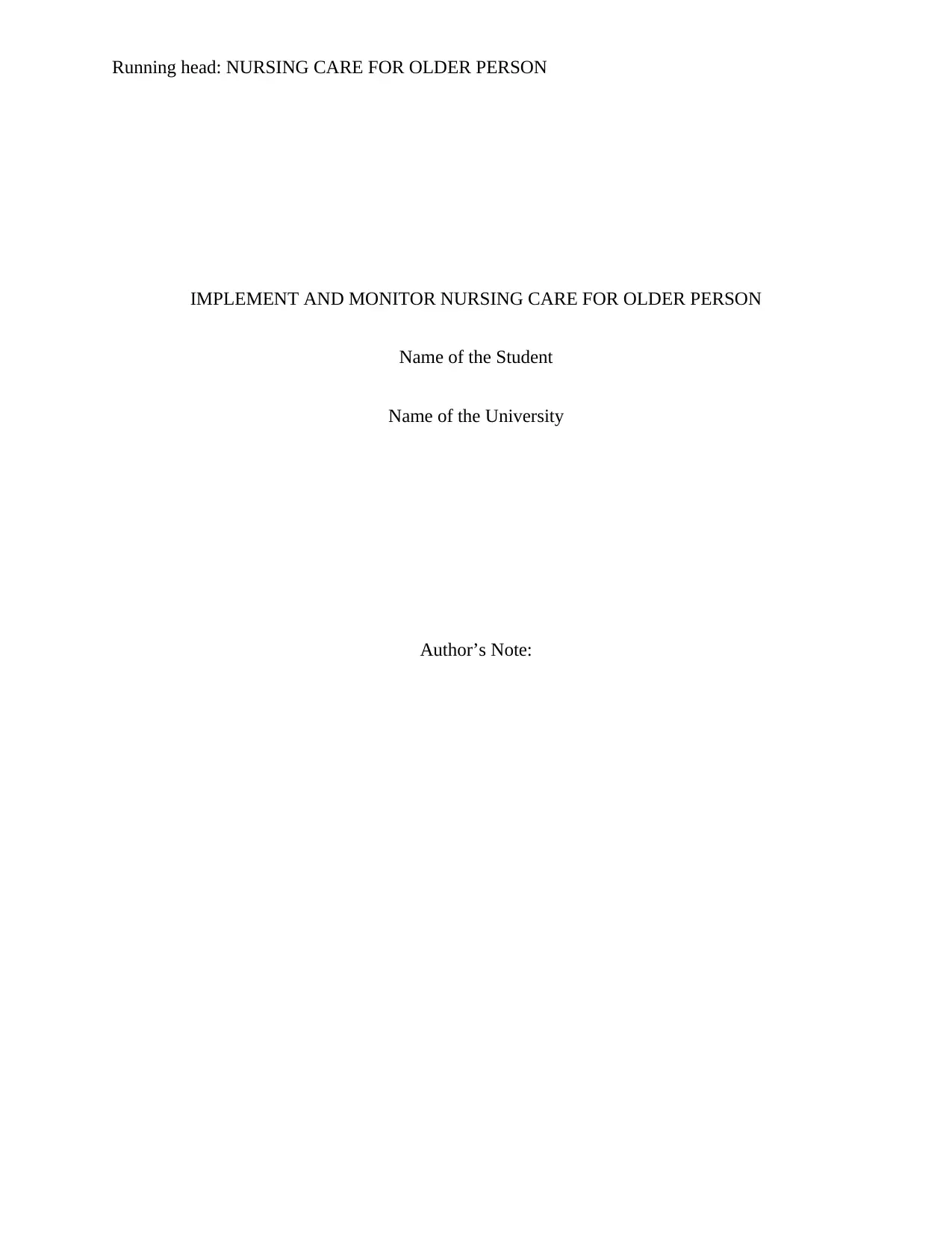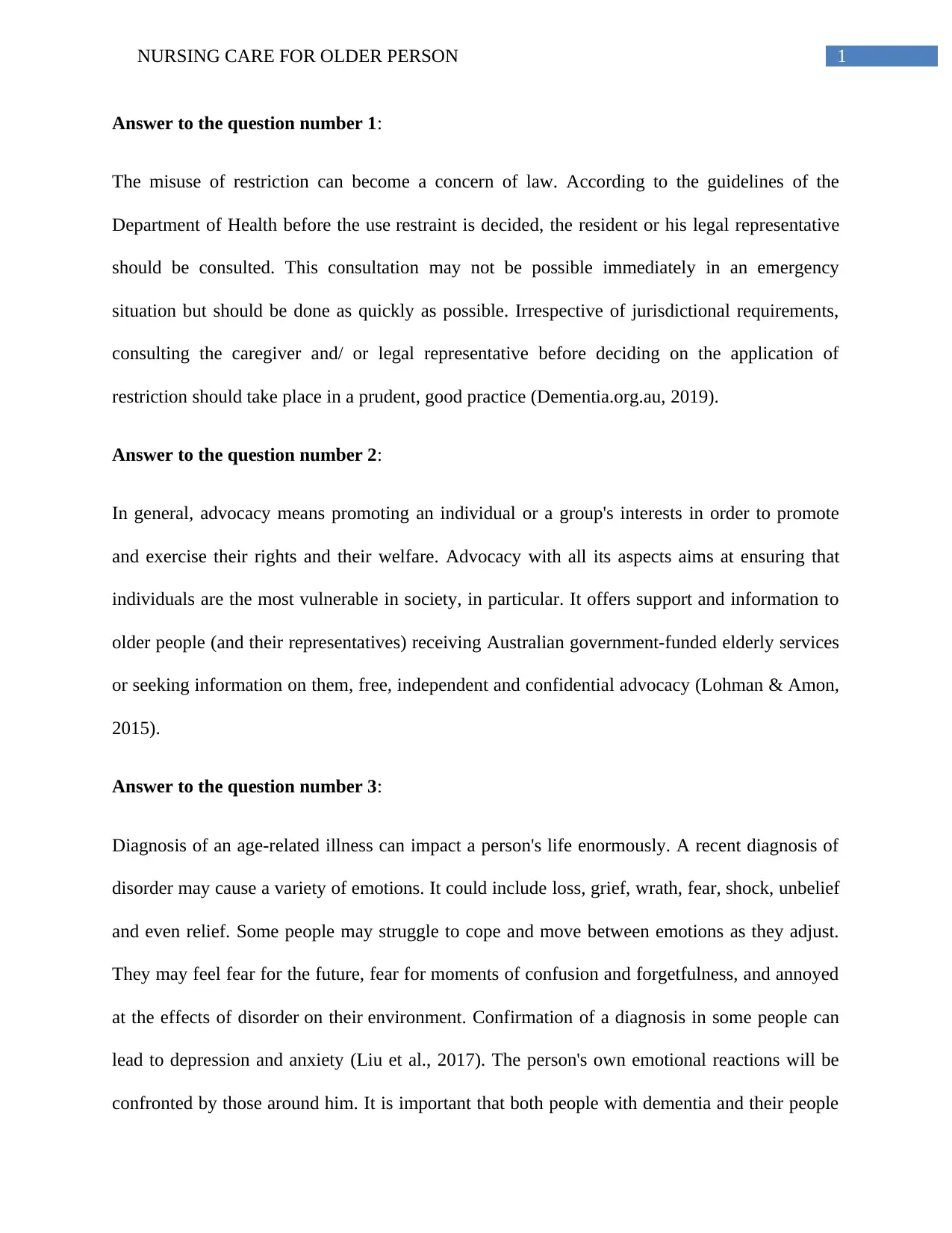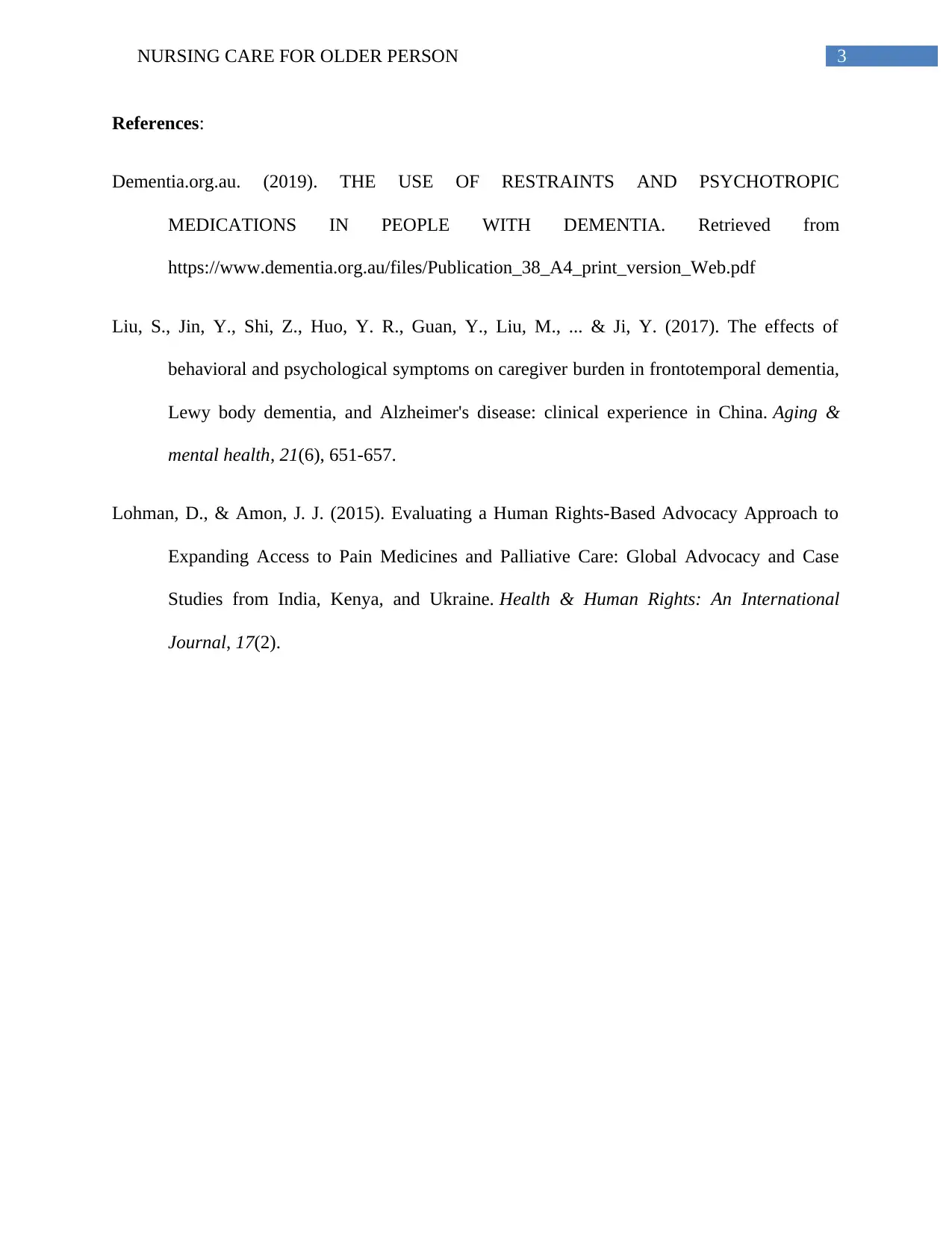University Name - Nursing Care for Older Person Assignment Report
VerifiedAdded on 2022/12/29
|4
|589
|90
Report
AI Summary
This report addresses key aspects of nursing care for older persons. It begins by discussing the legal and ethical considerations surrounding the use of restraints, emphasizing the importance of consulting with residents or their legal representatives before implementation. The report then examines advocacy, highlighting its role in protecting the rights and welfare of older individuals and providing them with support and information. Finally, the report explores the impact of age-related illnesses on individuals, including the emotional responses to diagnosis and the importance of providing support and understanding. The report references relevant research and provides a comprehensive overview of these critical topics in geriatric care.
1 out of 4






![[object Object]](/_next/static/media/star-bottom.7253800d.svg)